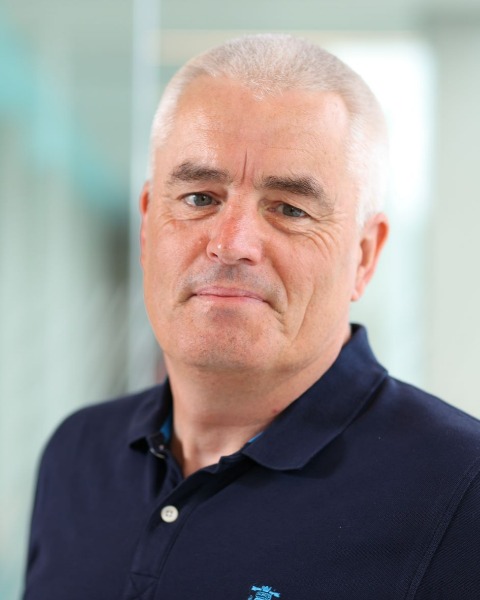60 Minute Main Congress Breakout Sessions
Session: HUGS@Home - Supporting First Responder Families Through Simulation Enhanced Training
D3 - Hugs@home - Supporting First Responder Families Through Simulation Enhanced Training
Thursday, May 4, 2023
3:45pm - 4:45pm EST

Brian Doyle, PGDip, MSc, CCISM
Retired Firefighter/Paramedic/CISM peer supporter
Royal College of Surgeons Ireland, Dublin
Arklow, Wicklow, Ireland
Going home after a difficult shift is sometimes the hardest thing for first responders to do. HUGS@Home empowers family members or friends of first responders to provide social support by raising awareness and teaching practical stress management skills. Training participants in the elements of ‘HUGS‘: Hearing, Understanding, Guiding, and Supporting can help reduce the impact of what their first responders take ‘Home’ and enhance the wellbeing of first responders, and their loved ones. Our presentation will outline the four phases of our Movember Funded project, which included Phase One – Co-Design Participants’ voices are one of the main pillars of our project, with their experiences shaping the programme’s development and design. The project team hosted ongoing co-design workshops, where first responders, family members of first responders, and organisational representatives were invited to share their opinions and perspectives, where everyone’s voice was equal. Phase Two – Education Our project aims to raise awareness of the impact of critical incident stress on first responders and to educate their loved ones using Simulation enhanced training, with basic psychological first aid techniques to support better wellbeing in the family unit. Phase Three – Support While working with our co-design participants, we discovered that family members and friends would like to connect with other people who are having similar experiences to themselves. In conjunction with Mental Health Ireland, we will facilitate Connect Cafes to enable participants stay connected after the training, either online or in person. Phase Four – Evaluation A key element of our project is evaluation, which ensures the effectiveness and impact of our program on the community. We will invite family members and friends to participate in one-to-one interviews, focus groups, and questionnaires at various time points throughout the project lifespan. Our presentation includes some preliminary results from the program evaluation.
*Profession Specific CEs
This presentation is approved for 1 PDH from EAPA- Employee Assistance Professionals Association.
*Review ICISF World Congress 17 CE website page for additional requirements.
*Profession Specific CEs:
This presentation is approved for 1.0 CE Credits by The Anne Arundel County Mental Health Agency, Inc. (AACMHA) as an approved sponsor of the Maryland Board of Social Work Examiners for continuing education credits for licensed social workers in Maryland.
This presentation is approved for 1 PDH from EAPA- Employee Assistance Professionals Association.
1 CE Credits for NAADAC, This course has been approved by International Critical Incident Stress Foundation (ICISF), as a NAADAC Approved Education Provider, for educational credits. NAADAC Provider # 87914, International Critical Incident Stress Foundation (ICISF), is responsible for all aspects of the programing.
*Review ICISF World Congress 17 CE website page for additional requirements.
*Profession Specific CEs
This presentation is approved for 1 PDH from EAPA- Employee Assistance Professionals Association.
*Review ICISF World Congress 17 CE website page for additional requirements.
*Profession Specific CEs:
This presentation is approved for 1.0 CE Credits by The Anne Arundel County Mental Health Agency, Inc. (AACMHA) as an approved sponsor of the Maryland Board of Social Work Examiners for continuing education credits for licensed social workers in Maryland.
This presentation is approved for 1 PDH from EAPA- Employee Assistance Professionals Association.
1 CE Credits for NAADAC, This course has been approved by International Critical Incident Stress Foundation (ICISF), as a NAADAC Approved Education Provider, for educational credits. NAADAC Provider # 87914, International Critical Incident Stress Foundation (ICISF), is responsible for all aspects of the programing.
*Review ICISF World Congress 17 CE website page for additional requirements.
Learning Objectives:
- • Raise awareness of the needs and issues for those who provide social support to our first responders and how supporting the supporters enhances the mental health of first responders, their family members, friends and trusted others.
- •Facilitate the involvement of all stakeholders when design an innovative a novel training curriculum in the area of critical incident stress management.
- • Recognise the need for peer support for family members of first responders and links to further supports if required.
